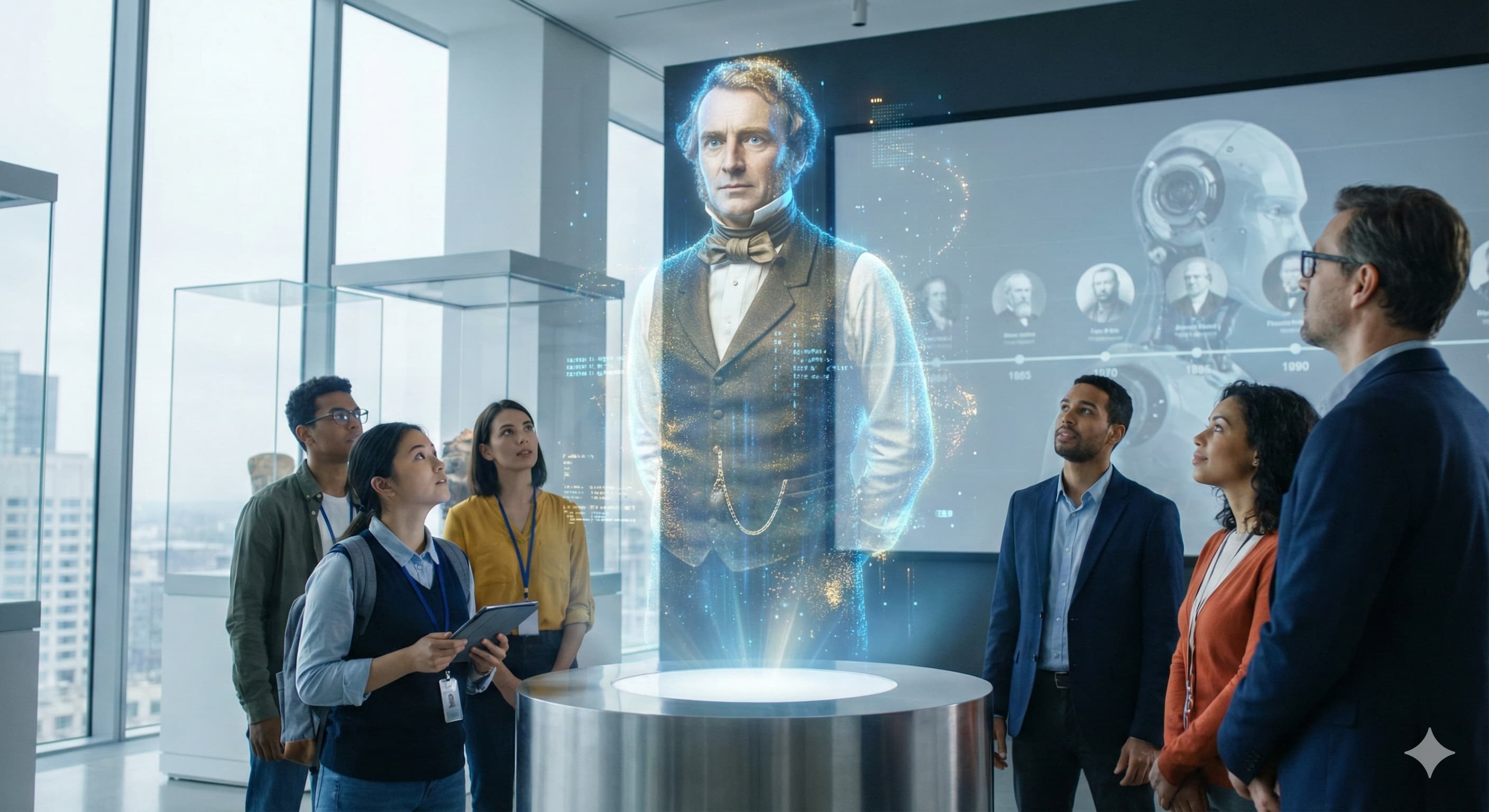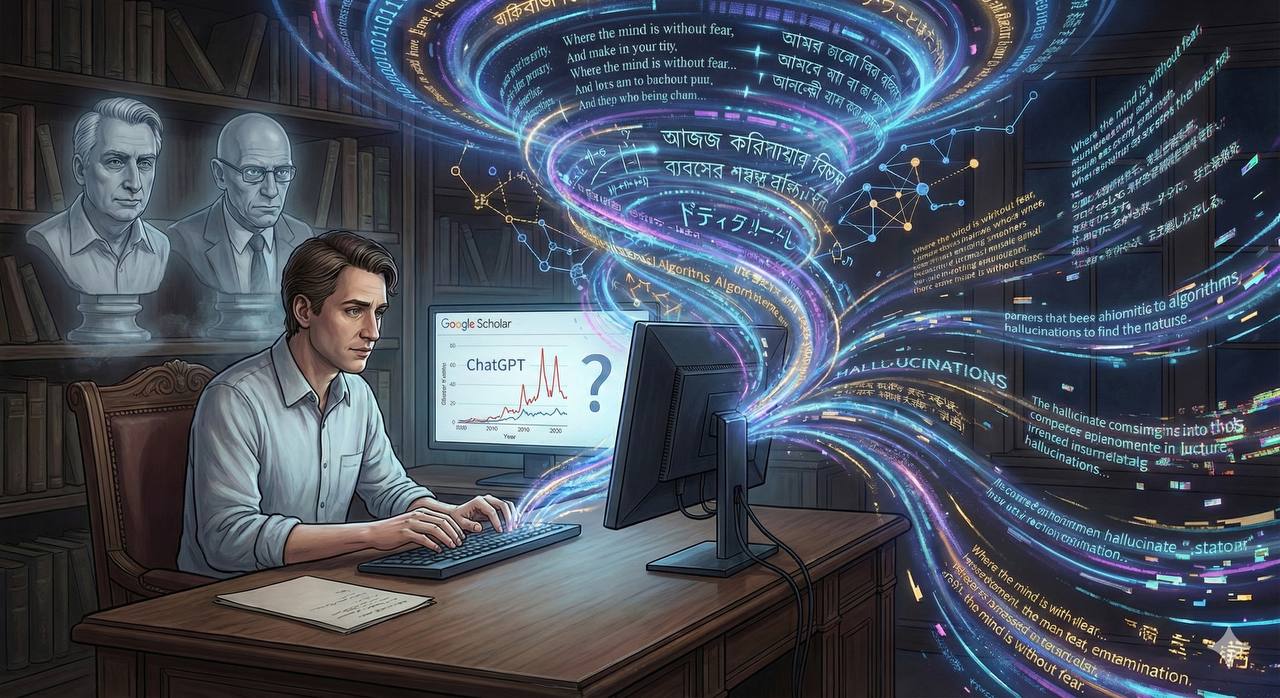Art, History, AI, and Axioms
Impact of AI on Art and History
Claims that AI will completely transform a field of human activity, as well as claims that AI is just a new toy, a product of marketing, and a "headless voice" (a memorable metaphor from computer scientist Yejin Choi, in our opinion, deserve criticism, like any categorical statement. AI is a new and undoubtedly large-scale technology that is capable of integrating into many important processes and areas of activity, and, as has happened many times in human history, it will do so with all its limitations.
From the perspective of SONJA DRIMMER AND CHRISTOPHER J. NYGREN, authors of the article "ART HISTORY AND AI: TEN AXIOMS," to minimize the negative consequences of this integration, it is important today not to be a mere observer of how AI changes the field of art history studies: “If, to paraphrase a number of commentators on the subject, the AI horse is already out of the barn, then it seems at the very least we might put some roadblocks in its way to slow its gallop and allow ourselves time to think about what to do about it, rather than let it ride roughshod over the field of art history.”
The authors propose ten axioms that, in their view, should define future relations between AI and art history. These axioms are addressed to both scholars engaged in art history research and AI specialists implementing new technologies in the field of science.
The full list of axioms can be found in the original source; we would like to focus on those whose significance goes beyond the conversation about art history alone. That is, on those that are significant for any historical research and the field of digital humanities in general.
Does art history need AI?
Axiom 1: The history of art is not a problem to be solved
The authors contrast the role of AI in medicine with its role in art historical research. This contrast, in our opinion, also works when we talk about any historical research. In the case of medicine, AI is needed to solve important problems, such as in the field of early disease diagnosis. Here, AI acts as a tool capable of processing large volumes of data to identify patterns and form conclusions, directly helping doctors and patients.
In historical research, we are dealing with the implementation of AI in a field with different kinds of tasks:
“However, art historical inquiry is fundamentally different—artistic objects are not problems to be solved, but the residue of bygone moments of human creativity that merit our attention. Understanding art within its historical context requires us to engage with humanity from a position of humility—we are here neither to solve 'the past' nor 'art,' but to learn from them both.”
For historical science, the process of understanding and discussion is important. It is crucial to find the right role for AI in this process. For instance, AI can become a tool for creating alternative histories, and the discussion of such content can complement discussions and debates. Thus, AI allows us to look at history through the eyes of different people, considering the interpretation of the same events from different perspectives.
Ethical Considerations in AI and Machine Learning
Axiom 4: Artificial Intelligence and Machine Learning will re-inscribe existing hierarchies rather than challenge them
The authors of the article note that the use of AI and machine learning in art history research can inevitably reinforce and support existing views and preferences, rather than challenge them or bring significant changes.
AI and machine learning algorithms are trained on existing data that may reflect historical trends and biases. As a result, the outcomes generated by AI will tend to repeat and support these existing structures instead of offering new interpretations or directions for research.
“AI relies on scale, and thereby necessarily privileges objects and data that are already categorized and available to be fed into the computer, and it relies on the assumption that any dataset is independent and representative without acknowledging the particular institutional history of that dataset’s formation as such.”
“We worry that computers will calcify hierarchies that recent generations have worked diligently to counter.”
This axiom is particularly important for historians, in our opinion. It touches on the ethical aspects of using AI in historical science, a topic that is inseparable from any conversation about the limitations of AI's application.
“We worry that computers will calcify hierarchies that recent generations have worked diligently to counter.”
This axiom is particularly important for historians, in our opinion. It touches on the ethical aspects of using AI in historical science, a topic that is inseparable from any conversation about the limitations of AI's application.
Human and AI Capabilities in Historical Research
Axiom 5: It is important to know the difference between what humans do well and what computers do well
According to the authors, the problem with applying AI in research is that “for computers, nothing matters except finding a solution.”
AI will always find a solution based on the information provided. If the information is distorted or incomplete, it will be reflected in the solution, but it doesn't matter to AI. Its "world" at the moment of solving the task is the given data. According to the authors, to whom we unequivocally agree, a good result of using AI in historical research is impossible without the participation of a person, a scientist, whose world is not limited to the dataset.
Finding an effective role for both humans and AI in historical research is an interesting task, the solution of which, in our opinion, requires bold experiments with critical reflection on their results.
For more on the axioms that should define future relations between AI and art history, read the article









